
THREAD: economic alert consumer sentiment plummets...
LifeLine™ Media threads use our sophisticated algorithms to construct a thread around any topic you want, providing you with a detailed timeline, analysis, and related articles.
News Timeline


US CREDIT DOWNGRADE Ignites Panic and Reckoning on Debt
— America just lost its “perfect” credit rating, and the fallout is hitting hard. Investors are rushing to gold, worried that markets could get even more unstable.
Experts warn that higher borrowing costs for the government could soon hurt families and small businesses. The downgrade is sparking fresh arguments over how Washington handles spending and debt.
This blow comes as Congress keeps fighting over how to manage the nation’s finances. Fixing the economy now looks even tougher with so much uncertainty in Washington.

UN BLAMES AMERICA: Gloomy Global Growth Forecast Sparks Outrage
— The United Nations is blaming the U.S. for a slowdown in global growth, pointing to higher American tariffs and trade fights. The U.N. now expects worldwide growth to hit just 2.4% this year and 2.5% in 2025 — both lower than what they predicted before.
Shantanu Mukherjee from the U.N.’s Economic Analysis team says “uncertainty” is everywhere right now. He also blames shaky politics, rising costs, supply chain messes, and financial worries for making things worse.
The slowdown is especially tough on developing countries. Their expected growth rate dropped from 4.6% to 4.1% since January — a huge loss for places already battling poverty.
U.N. experts warn that if these trends continue, more than half of the world’s poorest people could face even harder times ahead.

FED’S Bold Move Stuns Wall Street: Trump’S Trade Fight Ignites Fear And Hope
— Wall Street took a wild ride after the FEDERAL RESERVE made its latest move and President Trump doubled down on tariffs. Investors were left uneasy. Goldman Sachs warned the S&P 500 could drop even more if trade fights get worse. UBS also lowered its forecast, showing growing worry about where things are headed.
The S&P 500’s longest winning streak in twenty years came to an end as traders feared new tariffs could hurt economic growth and profits. Some industries, like media and film, are especially nervous about possible tariffs on foreign movies, which has sparked debate over American jobs and creative freedom.
Treasury Secretary Scott Bessent tried to calm everyone down by saying Trump’s policies — tariffs, tax cuts, and cutting red tape — are meant to help America in the long run, even if things feel shaky now. The White House says these steps will make U.S. businesses stronger against unfair competition from other countries.
As markets react to these changes, people are split on whether tough trade rules will help or hurt in the end. Many conservatives believe Trump is finally standing up for American workers who have been ignored for too long by global deals that put them last.;
GOLDMAN SACHS Sounds Alarm: S&P 500 Faces Shock From Trump-ERA Trade Fight
— Goldman Sachs is warning that the recent jump in the S&P 500 may not last. The bank says new trade tensions under President Trump and signs of a weaker economy are big risks for investors.
Trump’s “Liberation Day” announcement has stirred up talk about more U.S.-China tariffs. Goldman Sachs questions if the market can keep rising if these trade fights heat up again.
TD Cowen now says there’s a 70% chance that Chinese stocks could be kicked off U.S. exchanges, thanks to ongoing pressure from Trump’s team. This adds even more worry for investors as trade rules keep changing fast.
These warnings show how quickly things can shift on Wall Street when leaders make bold moves and economic data sends mixed signals. Investors are watching closely to see if tariffs will cause real trouble — or if relief is on the way soon.
US MARKETS SHAKEN: GDP Slump and Trump’S Tough Trade Moves Rattle Investors
— Wall Street had a rocky day. The Dow Jones rose by 141 points, but the S&P 500 and Nasdaq barely moved. New data showed the US economy shrank for the first time in three years, and job growth was weaker than hoped. Many investors are watching President Trump’s trade tariffs as inflation reports come out and tech stocks struggle.
Visa stood strong with big profits and a $30 billion stock buyback plan. CEO Ryan McInerney said Visa’s business model is helping them stay steady in these tough times. But airlines and auto parts companies are still feeling the pain from tariffs.
Outside the US, Pakistan’s stock market crashed over fears of military conflict with India, which also hurt Indian markets. In Europe, the central bank raised interest rates even though banks are still shaky after problems at Credit Suisse.
Tech firms like Super Micro Computer reported less demand for AI equipment, while BlackRock invested more in blockchain technology. Experts say investors should be careful with risky stocks right now and look at safer options as global uncertainty grows.

TRUMP’S “Liberation DAY” Shocks Markets: Wall Street Reels as Tariffs Spark Global Showdown
— President Trump’s “Liberation Day” tariffs have rocked the markets. The Dow dropped more than 2,000 points on some days. The S&P 500 and Nasdaq both fell into bear market territory. These tariffs, reaching up to 125% for some countries, are the highest seen in a hundred years. China, the EU, and Japan are feeling the pain most. China hit back with its own tariffs on American goods. Japan’s finance minister warned of global trouble ahead. Still, US officials say they’re hopeful about future trade talks. Big companies are taking hits too. CarMax shares sank after weak earnings reports. Nvidia tumbled more than 20% from its high point this year. UnitedHealth lowered its profit forecast because Medicare costs keep rising. Experts think this wild ride will last until trade fights settle down. Some industries are holding up better than others under pressure. The Federal Reserve might cut rates three times this year if things get worse — some warn a financial crisis could happen if tariff chaos continues much longer.

TOURISM INDUSTRY Braces for ‘Trump Slump’ Fears
— The U.S. TOURISM industry, worth $2.36 trillion, is under pressure from economic and political uncertainties. Concerns over tariffs and currency fluctuations are making foreign visitors uneasy. This turbulence could affect the world’s strongest travel market.
American Ring Travel, a California-based tour operator, reports a slowdown in bookings from Germany. This drop followed Elon Musk’s endorsement of a far-right party in Germany’s election, showing broader worries impacting international travel to the U.S.
Industry insiders humorously compare their uncertainty to Batman and King Kong’s fictional adventures. Their feelings mirror those of Times Square’s superhero-themed businesses facing similar struggles last week. Optimism remains cautious as stakeholders navigate these unpredictable times.
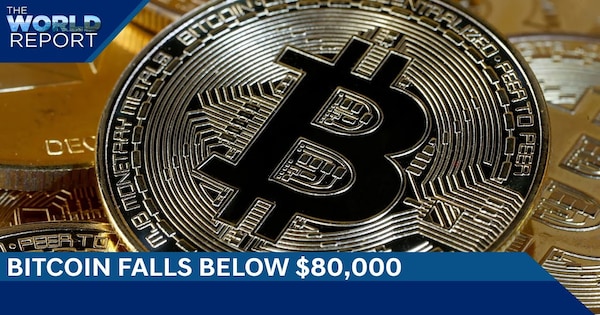
MARKET PANIC: Bitcoin and Stocks Plummet in US Tariff Chaos
— Bitcoin dropped below $80,000 on Sunday, falling over 3% in just two hours. This decline happened alongside major losses in U.S. stock markets. The S&P 500 and Nasdaq Composite both closed nearly 6% lower on April 4. Analyst Holger Zschaepitz noted the stock market lost $8.2 trillion, surpassing losses from the worst week of the 2008 financial crisis.
The market chaos comes from recent U.S. tariffs that have sparked widespread sell-offs across many sectors. Despite this turmoil, some investors see potential buying opportunities as stocks are now trading at historically low valuations of 15 times future earnings projections.
Jim Cramer has warned this could be just the start of a bigger downturn for the S&P 500, predicting a further meltdown of up to 20%. As of Sunday night, S&P futures were down about 4%. Global stocks have already lost $7.46 trillion since April 2nd and may exceed $10 trillion if recent sell-offs continue to unfold.;

US TRADE Policies Cause GLOBAL Economic Jitters
— Recent U.S. tariffs have left Canadian small businesses facing economic challenges, leading to job cuts and price hikes. The Canadian Federation of Independent Business reports nine percent of owners have issued layoff notices due to these tariffs. Businesses are raising prices by an average of 3.7 percent this month as they struggle with rising costs and decreased consumer spending.
In Alberta, business leaders feel cautiously optimistic after avoiding new U.S.-imposed tariffs that threatened the energy sector. Adam Legge from the Business Council of Alberta feels relieved but remains wary about future trade developments under current policies.
President Trump’s tariff strategy aims to equalize import taxes with those imposed by other nations, sparking debate over its economic impact on sectors like agriculture and manufacturing. Meanwhile, Japan’s Prime Minister Shigeru Ishiba expressed disappointment over Japan’s exclusion from tariff exemptions and plans support for affected industries domestically.
These developments highlight growing concerns about global economic instability driven by U.S. trade policies, particularly affecting small businesses worldwide as they navigate uncertain financial landscapes.

TRUMP’S Trade Policy Shocks: US Stocks Plunge in Market Chaos
— The EURO has surged to a six-month high as investors react to the latest U.S. tariff announcements. Meanwhile, the Australian dollar has taken a hit, reflecting global market volatility. These currency shifts highlight ongoing economic uncertainties fueled by international trade tensions.
U.S. stock futures have plummeted after China’s retaliatory tariffs on American goods, marking another phase in the global trade conflict. The Dow Jones dropped 1,679 points, causing widespread concern among investors and financial strategists who urge calm and strategic planning during these turbulent times.
Bitcoin ETFs saw nearly $100 million in net outflows as markets reacted sharply to tariff news from the Trump administration. This exodus underscores investor anxiety and uncertainty about future economic conditions amid escalating trade disputes with China.
Goldman Sachs has revised its oil price forecasts downward due to fears of a potential recession and increased supply from OPEC+. Gold prices have steadied after an initial selloff triggered by aggressive U.S. tariff policies, indicating cautious optimism among investors seeking safe-haven assets in uncertain times.
TRUMP’S 10% Tarifts Spark Stock Market Chaos
— U.S. stocks plunged after President Trump announced a 10% tariff on all trading partners. The Dow dropped about 1,300 points, with the S&P 500 and Nasdaq also taking hits. Investors quickly reacted, showing concern over potential economic fallout.
President Trump plans to impose reciprocal tariffs starting at 10%, targeting countries worldwide and adding extra duties for “worst offenders.” This move has unsettled markets and might lead to higher consumer costs and a possible recession. Economists are worried about the long-term effects on both domestic and global economies.
Globally, the response has been mostly negative, with many countries considering countermeasures to protect their economies from these new tariffs. This rise in trade tensions marks a significant shift in international economic relations under Trump’s leadership. Key sectors relying on international trade may face challenges as relationships with major trading partners change.

STOCK MARKET Chaos: US Faces Economic Fears as Tariffs Loom
— U.S. stocks took a nosedive today as President Donald Trump’s “Liberation Day” approaches, bringing potential tariffs on Canadian steel and aluminum imports. Analysts warn these tariffs could trigger a market downturn and increase recession risks. Wolfe Research has already revised U.S. growth estimates for 2025 down to 1.6%.
Retail giant Kohl’s experienced its worst trading day since 1992, with stocks tumbling by 26% after issuing disappointing guidance for the year. Investor anxiety is also heightened by an upcoming House vote on a stopgap funding bill, adding to market volatility.
The Dow Jones Industrial Average has fallen 8.3% from its peak, raising concerns about the tech sector’s performance compared to the S&P 500. Investors are bracing for further shifts as policy decisions unfold in the coming days amid fears of reduced earnings across sectors due to new tariffs and declining consumer confidence.

TRUMP’S Bold Move: How NEW Tariffs Rattle the Stock Market
— U.S. stocks fell sharply as President Donald Trump’s tariffs on Canada and Mexico took effect, sparking economic fears. Investors worry about the potential impact amid existing uncertainties. Analysts warn of a possible recession, urging caution in market activities.
The S&P 500 and Nasdaq composite saw major drops, hitting technology stocks hard. Companies across sectors are revising forecasts due to these new trade policies. Experts suggest these tariffs could worsen inflation and reduce consumer spending soon.
These tariffs are part of Trump’s broader trade agenda to boost U.S. manufacturing but risk retaliatory actions that may harm American businesses and consumers. The market remains bearish as analysts closely watch for policy fallout effects.

NEW DUTY Shock: Retail Prices to Skyrocket, Consumers Worried
— Retailers are raising concerns about a looming price surge. A new 25% duty on exports from Mexico and Canada is set to increase costs. This change could lead to higher prices for shoppers almost immediately.
The duty affects a wide range of goods, impacting everyday items. Retailers warn this could disrupt supply chains and limit product availability. Shoppers should brace for potential price hikes at local stores.
Efforts to ease these effects are underway, but challenges remain tough. Businesses might need new strategies to handle rising costs. The economic impact of this policy change deserves close attention from policymakers and the public alike.

INDIA’S Real Estate Boom: Why Buyers Shouldn’T Panic
— The real estate market in INDIA is seeing a big rise in prices across major cities. But experts say buyers shouldn’t lose hope.
There are still chances for buyers to get good deals because the market might cool down, not crash.
This year is a special time for buyers to use their bargaining skills well. For more insights, watch “Let’s Get REal with Manisha Natarajan.”

GOLD Prices PLUMMET Amid Trade WAR Jitters
— Gold prices took a big hit on Tuesday as traders cashed in profits with US Treasury bond yields falling. The XAU/USD pair saw a noticeable drop during the North American session. President Trump’s tariff threats against Mexico and Canada added to market uncertainty, affecting investor choices.
The decline in gold prices marks a change from the previous session’s record highs, driven by fears about Trump’s trade policies. Investors are reacting to possible instability in global markets, leading them to take profits.
This market shift highlights ongoing worries about economic stability and trade relations under the current administration. As traders adjust their positions, gold’s recent rally seems to be losing momentum amid these geopolitical tensions.

INSOLVENCIES SURGE: Businesses Face Economic Pressures in England and Wales
— Insolvencies in England and Wales have jumped from December 2024 to January 2025. Law firm Fladgate LLP reports a significant rise in administrations. The economic climate is tough for businesses, especially in retail, which already struggles with slim profit margins. The upcoming Spring Budget might introduce tax hikes that could further pressure businesses and consumer spending.
ANGLO AMERICAN’s $500 Million NICKEL Sale Marks Strategic SHIFT
Anglo American has sold its nickel business for $500 million as part of a strategic shift to focus on copper and iron. This sale follows the disposal of its steelmaking coal business, bringing total asset sales to about $5.3 billion. CEO Duncan Wanblad highlighted that these moves are meant to streamline the company’s portfolio and boost value.
COLORADO BILL DEMANDS Climate Transparency from Businesses
Colorado will require businesses to disclose their greenhouse gas emissions starting in 2028, aligning with similar efforts by other states. This legislation responds to past criticisms about inconsistent sustainability reporting practices across industries. The goal is more transparency and accountability regarding environmental impacts from companies within the state.
The IRS plans major layoffs during tax season due to budget cuts initiated by the Trump administration, which may affect its
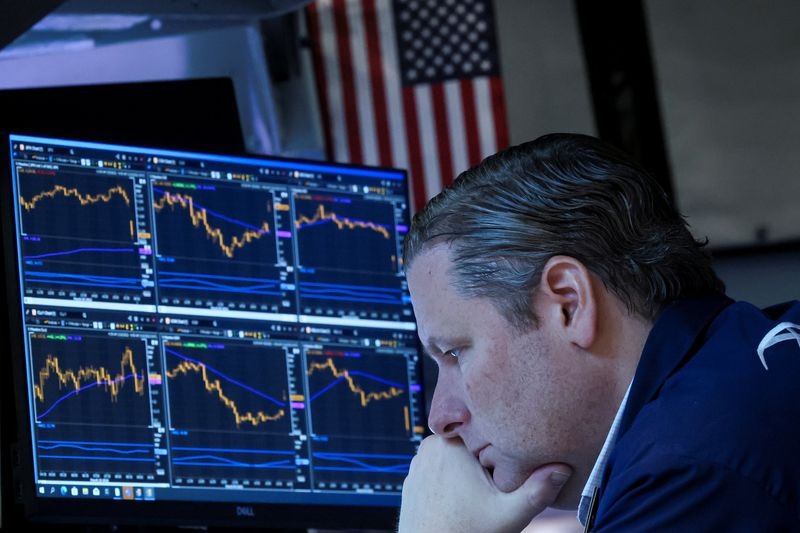
STOCK MARKET Chaos: Inflation Fears Shake Investor Confidence
— The U.S. STOCK market took a big hit today, with major indexes dropping over 3% due to rising inflation fears. Investors worry about possible Federal Reserve policy changes after high inflation numbers came out earlier this week. This is one of the steepest drops in months, shaking confidence that had been boosted by strong job reports.
Bond yields are up, with the 10-year Treasury bond yield hitting about 4.1%, its highest since late 2023, signaling increased inflation expectations. Big tech stocks like Apple and Microsoft saw sell-offs over 5%, adding to the market slump. Analysts warn that ongoing inflation might push the Federal Reserve to rethink interest rate policies, possibly leading to more hikes instead of cuts.
The decline comes after a strong holiday shopping season that initially suggested steady economic growth but is now overshadowed by ongoing inflation problems. Retail and consumer sectors face rising costs and reduced spending, making investors cautious in these areas. Companies like Walmart and Target report higher holiday sales but shrinking profit margins due to inflation pressures, prompting them to rethink annual forecasts.
Banks like JPMorgan are bracing for possible loan defaults as consumers struggle with higher living costs by setting aside more reserves. Market analysts expect continued volatility as investors digest new inflation data and Fed policy implications.;

ECONOMISTS SOUND Alarm: 2025 Financial Crisis Looms
— Economists are raising alarms about a potential financial crisis in 2025. David Kelly from JPMorgan warns that high stock market valuations pose a significant risk despite strong economic indicators like low layoffs and cooling inflation. Investors should be cautious as these inflated values could lead to a sudden market downturn.
Current economic signs show paychecks growing faster than prices, and stable gas prices offer optimism for Americans. However, the high asset valuations remain a critical concern for analysts. They suggest preparing for increased market volatility throughout 2025, with a crisis potentially emerging early in the year.
These warnings have led to cautious trading, especially in tech stocks that previously drove gains. Traders are balancing concern with optimism, causing fluctuating stock prices in early sessions.
This situation may prompt investors to reassess their portfolios and strategies as they navigate potential shifts due to changing market conditions. The economic concerns highlighted could significantly influence investor behavior and market dynamics moving forward.

WALL STREET Surges: Oil Price Drop Sparks Investor Optimism
— Wall Street is climbing today, driven by a 6% DROP in oil prices. Investors are gearing up for a crucial week of earnings reports from major tech firms.
Tech and energy stocks are leading the way, with analysts hopeful about tech giants’ futures. However, there is still caution about the overall economic outlook.
The fall in oil prices comes from oversupply worries and easing geopolitical tensions, affecting inflation rates and consumer spending that Wall Street closely monitors.
While U.S. markets rise, Asian markets face recession fears linked to U.S. economic performance, showing global interconnectedness and financial volatility.

— Dow Drops 300 Points as Rate Concerns Weigh on Post-Election Rally The Dow Jones Industrial Average fell 300 points on Friday, stifling momentum from the recent election amid ongoing worries about rising interest rates

— S&P 500 SOARS to NEW RECORD CLOSE The index surged as traders sought to capitalize on the momentum from recent Federal Reserve interest rate cuts

— Dow Jones Slides Over 100 Points Amid Economic Concerns in June Trading The Dow Jones Industrial Average dips over 100 points in the first trading session of June, with investor sentiment impacted by ongoing economic uncertainties

— ***Consumer Sentiment Plummets Amid Soaring Inflation Concerns*** Consumer sentiment takes a nosedive as worries over inflation reach new heights

— Stock Market Plunge: Dow Drops 475 Points, S&P 500 Records Worst Day Since January Amid Inflation Concerns

Video
GLOBAL ELECTIONS Shock: What’s at Stake for Iran, Britain, and France
— Over the next week, voters in countries like Iran, Britain, and France will head to the polls. These elections come at a critical time with global tensions high and public concerns over jobs, climate change, and inflation.
In Iran, Supreme Leader Ayatollah Ali Khamenei seeks a successor for President Ebrahim Raisi following his recent death. Candidates include hard-liners Saeed Jalili and Mohammad Bagher Qalibaf as well as reformist Masoud Pezeshkian.
These elections could significantly impact global politics amid ongoing wars in Europe, the Middle East, and Africa. The outcomes may reorient international relations during this period of mutual suspicion among major powers.


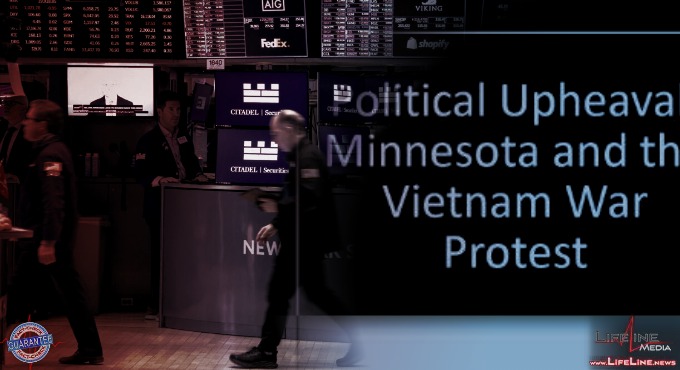
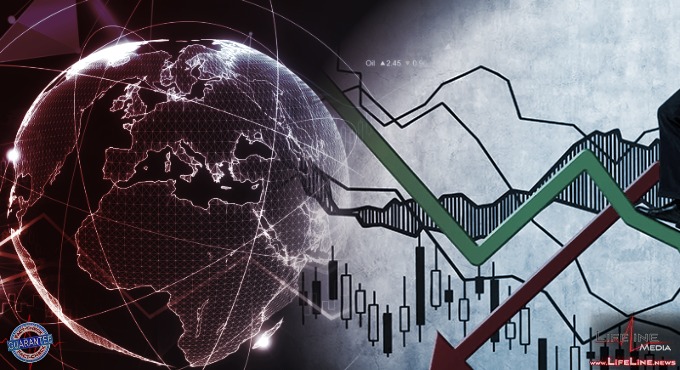




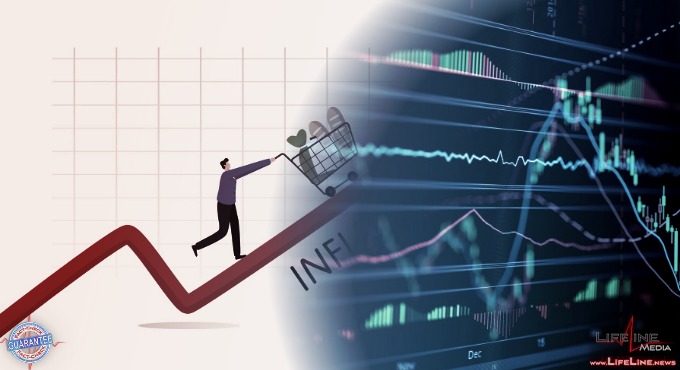
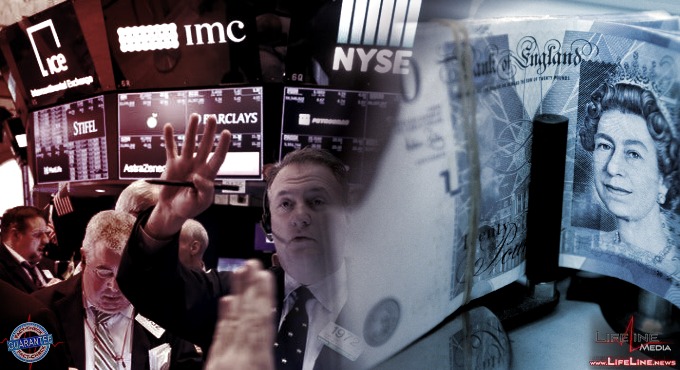

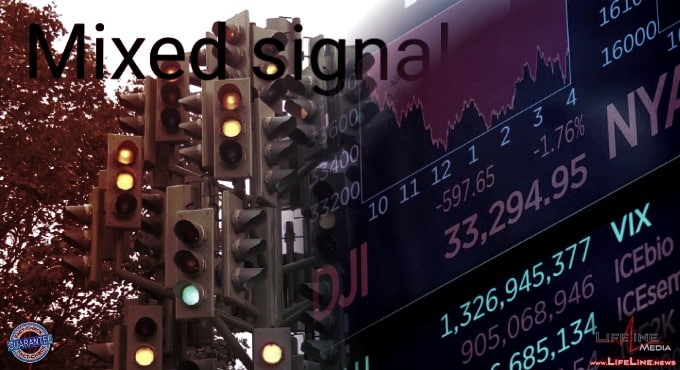

Social Chatter
What the World is SayingNavigating the New Normal: Understanding the Impact of Rising Interest Rates on Consumers and Businesses. Navigating the New Normal: Understanding the Impact of Rising Interest Rates on Consumers and Businesses https://bgodinspired.com/wp-content/uploads/2025/02/1738675234.png In a world where everything feels fleeting, the rise of interest rates comes like an unexpected storm, shaking the ground benea...
. . .Brace Yourselves: The Global Economic Shift Looming Worse Than the Great Depression. Brace Yourselves: The Global Economic Shift Looming Worse Than the Great Depression We are on the brink of an unprecedented shift in global power dynamics and economic structures, one that could rival and even surpass the hardships of the Great Depression. Before his death, an economist predicted fi...
. . .Stocks on the Tokyo exchange have plummeted over recession fears in the US economy Japan’s benchmark Nikkei 225 stock index suffered its biggest ever one-day loss on Monday as a global sell-off intensified amid fears that the US could be heading for a recession. The Nikkei plunged 12.4%, en...
. . .Stocks on the Tokyo exchange have plummeted over recession fears in the US economy Japan’s benchmark Nikkei 225 stock index suffered its biggest ever one-day loss on Monday as a global sell-off intensified amid fears that the US could be heading for a recession. The Nikkei plunged 12.4%, en...
. . .Stocks on the Tokyo exchange have plummeted over recession fears in the US economy Japan’s benchmark Nikkei 225 stock index suffered its biggest ever one-day loss on Monday as a global sell-off intensified amid fears that the US could be heading for a recession. The Nikkei plunged 12.4%, en...
. . .